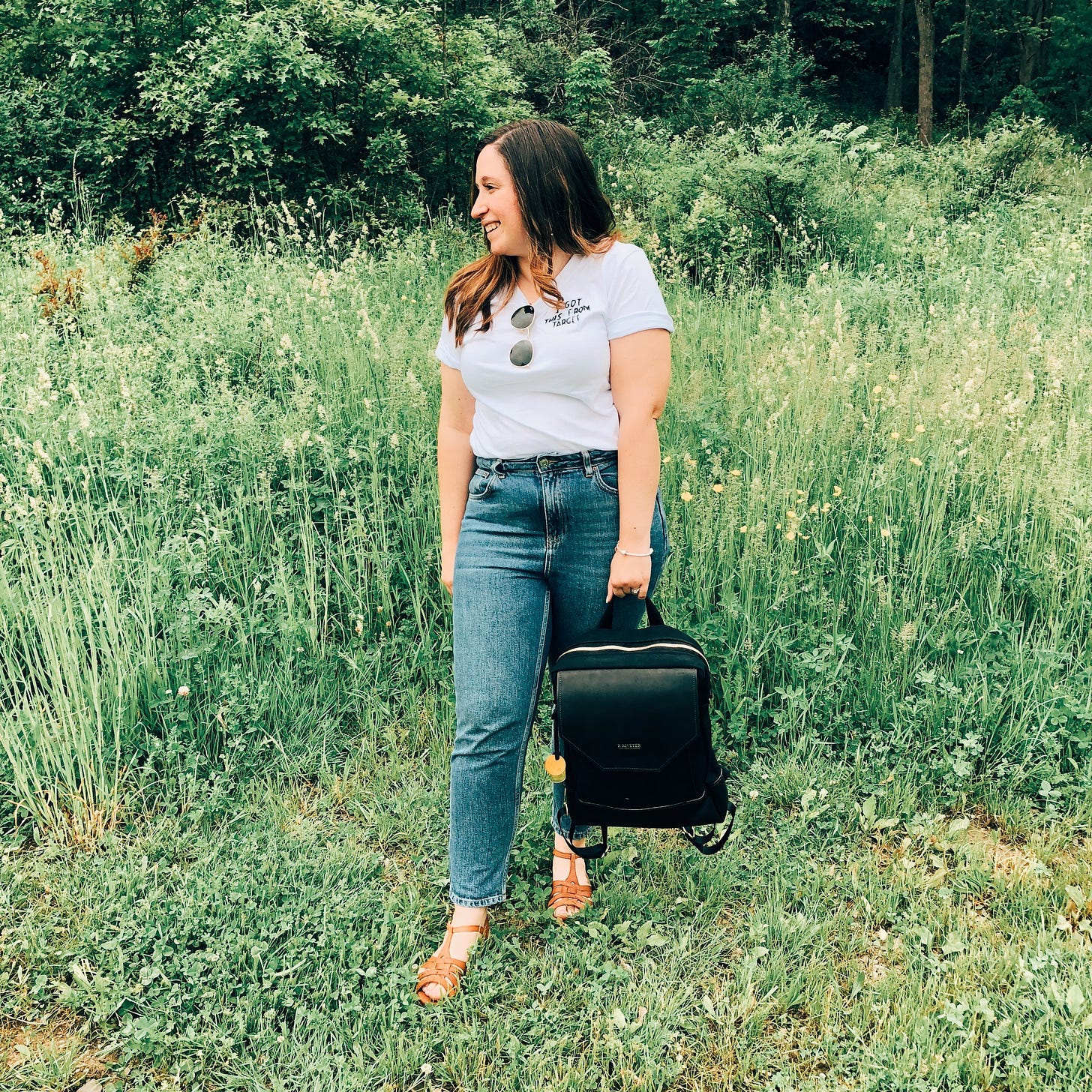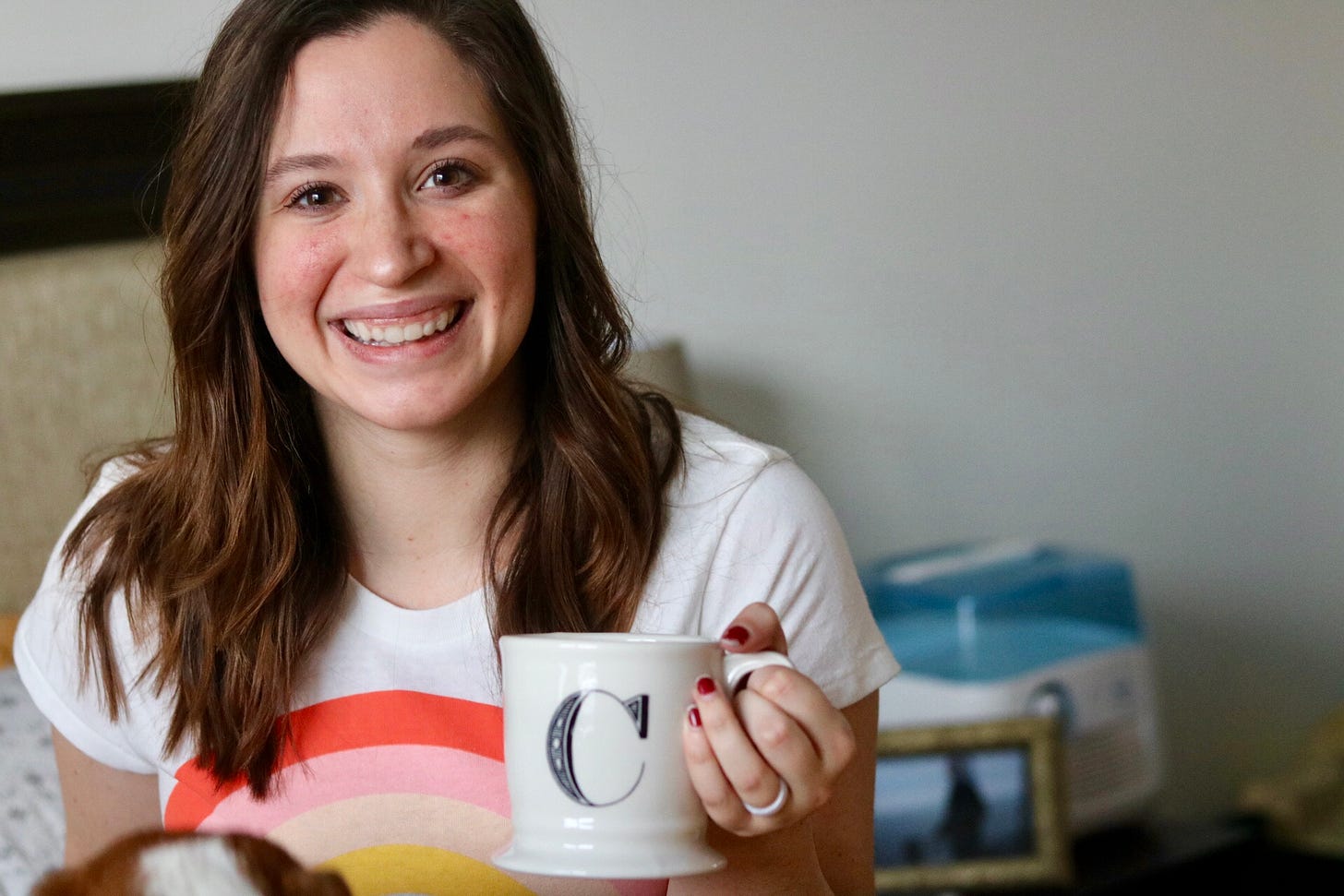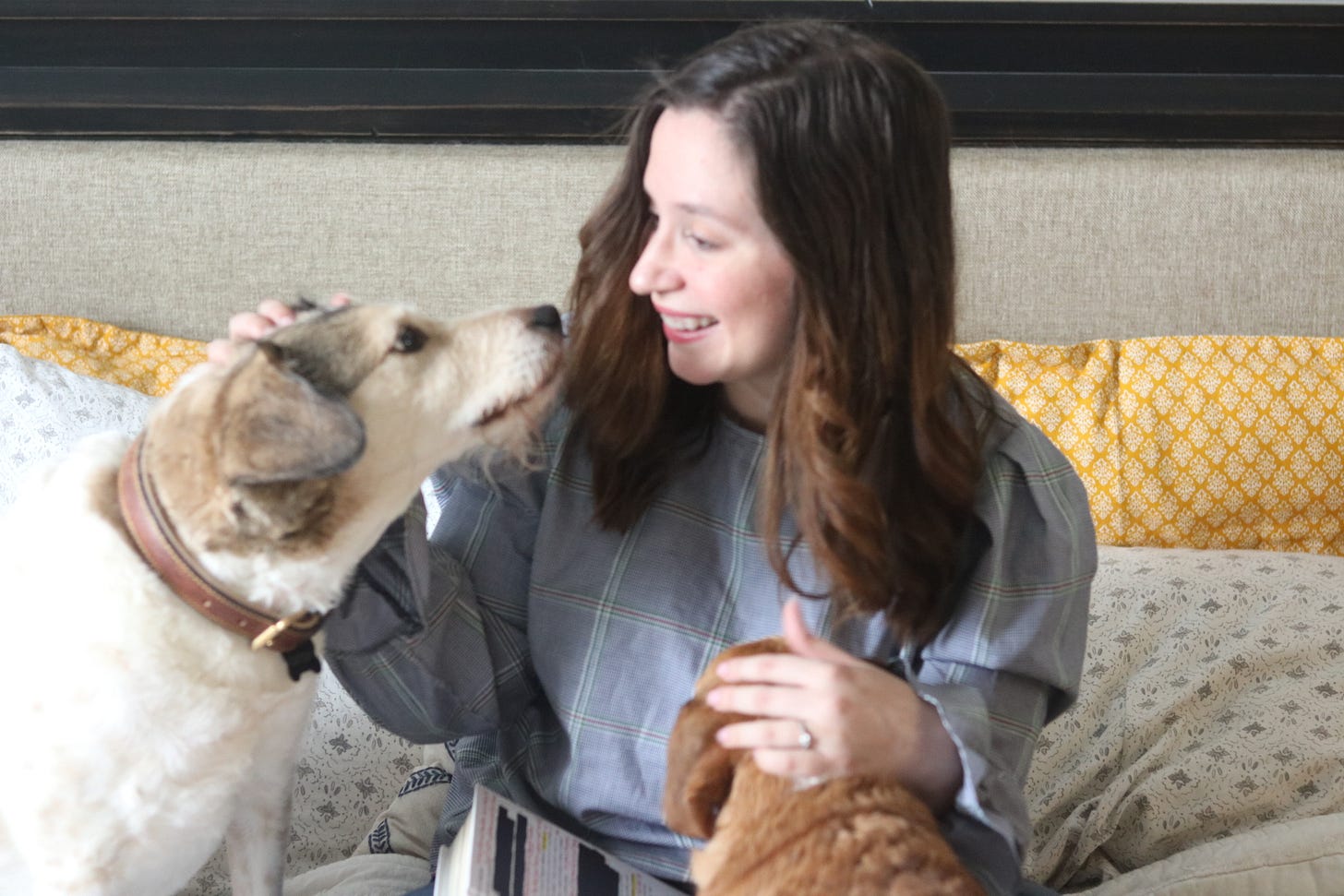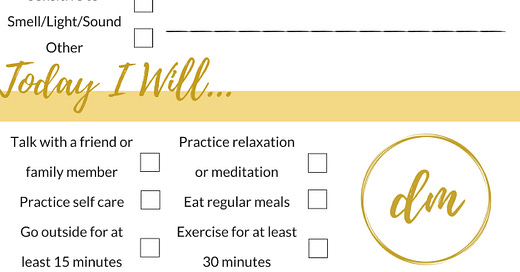How to Thrive with Depression | My Story + Depression Tracker
When I was brainstorming blog post ideas for the launch of this site, I couldn’t think of a better way to re-launch myself into the blogging world than by getting down and personal with all of you by sharing my depression and anxiety story. If you were one of my original readers who have heard this story before, or know me personally, I urge you to sit back and really read my story because I’ve updated it to be even more raw than last time (zero fluff).
If this is the first time you’ve come to my blog, welcome. I have been inspired to really dig deep and discuss my experience with depression and anxiety on a more personal and in-depth level. As always, my goal for sharing my story has always been to help those in need who may be going through something similar. I hope you will find strength, hope, and support in my story. As a special bonus, I've also created a completely free depression tracker which is included in our resource library.
My Struggle with Depression
If I had to point a finger to the exact moment when I realized I might have a problem, it would be way before I actually got help. My freshman year of college was terrible. I was miserable and felt trapped in an emotionally abusive relationship. I can recall about two or three depressive episodes over the course of our relationship (which started in high school). I didn’t know that’s what they were at the time, but hindsight is 20/20 or so they say. By the end of Freshman year, I was so miserable that I honestly didn’t know what was going on. I decided one night that I was going to end the relationship and I thought this was my road to salvation. I broke up with my boyfriend, got a dog, and moved into my first apartment (I had previously been living at home). I had some pretty great roommates and was getting my first taste of real independence.
We did what normal college girls do, we went to parties and to clubs, and slacked off in school occasionally. I was having the time of my life until I woke up one morning second semester and had absolutely no desire to go to class. It wasn’t the normal “I don’t feel like going today” either. The idea of getting out of bed, taking a shower, getting ready, etc., etc. felt impossible. So I stayed in bed. At the time, I just equated it to being a lazy college student. I had never been really driven academically. I knew I was smart and capable of making better grades, I just didn’t care. Like I said, I thought this was normal.
At some point that year, I began noticing that my parents were having marital problems. I felt confused and alone in the fact that I was a 20-something and parents don’t get divorced in your twenties. They get divorced when you’re young. That’s what I told myself. The confusion, anxiety, and pressure seemed to keep building and building. I still didn’t know that what I was feeling wasn’t normal. I began drinking… a lot. It started off casually at first, like most college students. You go to a party, have a few drinks, and so on. But then it evolved into something more serious. I began drinking for no reason, nearly every day of the week. There’s a lot I don’t remember about the next year.
It wasn’t until the second semester of my junior year when I actually began reflecting on the person I was becoming that I realized there was a problem. I didn’t recognize myself anymore. I had no idea how I became so out of touch with who I really was and that was scary. I started dating a guy I went to highschool with who, one night at a party, told me about his own battle with depression. I didn’t know it at the time, but that conversation would completely change my life. As a way of showing him that it was okay to seek help, I made an appointment at WVU’s Carruth Center.
I’ll be honest, I was in denial when Mae (my therapist at the time) first told me that I had depression and generalized anxiety (and panic disorder but who’s counting). How could I have a mental illness? We tend to be more critical of ourselves than we are on others. I knew that depression could affect literally anyone but when it happens to you, you start second guessing everything. I didn’t feel like I had a mental illness. I bought into the misconceptions. I turned on myself and it wasn’t a pretty sight. I cried for hours that day.
I started seeing a therapist regularly throughout the rest of my college career. I would be lying if I told y’all that I continued with it after graduating but the tools I learned while going to see Mae (who I sincerely hope is now a doctor and helping other people like me) have helped me to not only become more aware of my episodes but to deal with them when they came. I tried medication for a year and realized that didn’t really work for me but I found a path that did. I stopped drinking every day, I started running regularly, and I got a second dog. The point is, no matter how dark your darkest days are, there’s a light and a way out for you. I live with depression every day, whether I’m having an off day or feeling normal. Getting diagnosed with a mental illness may have changed my day to day life but it has not changed who I am. If anything, it has made me stronger.
The road to recovery is not easy. It is winding and never ending when you have a mental illness. I know that any day I can wake up and be set back by either my depression or anxiety. It's something I now have to live with. I understand now that the way I was feeling is not normal. But the point is, I did something about it. If you take nothing else from this series, the one thing I want you to remember is that it is okay to get help. It is okay to admit that what you’re feeling isn’t right. Admitting that and seeking help doesn’t change who you are. If anything, it makes you stronger. So let’s band together, create a community of support and understanding.
What My Depression Is
It’s important to remember that depression is different for everyone. Here is what my daily battle with depression looks like:
Getting out of bed in the morning is an accomplishment
I’m afraid of being alone but the thought of being around people is sometimes exhausting
Being around friends is exhausting and requires at least a day for me to recover from
I’m constantly inundated with new, creative ideas for business, blogs, etc. but have no motivation to execute them
It’s difficult to concentrate or focus myself on one task
Sometimes the idea of being intimate in even a simple way as holding hands is difficult for me
My thoughts race constantly
I can be full of energy yet exhausted at the same time
I feel like I’m going to fall apart at any moment
I’m lucky enough that my desire to help someone I truly cared about lead me to being able to get the treatment I needed at the time. I used to feel ashamed of the fact that I had to make weekly appointments with a therapist or take medication to control the chemicals in my brain but the bottom line is that you should never have to suffer through depression alone.
What Can You Do if Your Friend is Depressed?
Listen without judging or making assumptions
Educate yourself about depression to avoid common misconceptions
Encourage them to seek help and constantly offer your support
Keep in regular contact with them so they know that they’re not ever truly alone
Help them break down their days or creative ideas into manageable steps
What Comes Next?
Depression is something that will affect me for the rest of my life. No number of good days can ever prepare you for the bad days that are sure to come. I’m no expert, but I am here for you. Like I said, let’s create a community of understanding to lift each other up in times of need. Never hesitate to reach out to me personally if you find yourself struggling with your own depression. I can’t always write about my depression because I want this blog to be a source of positivity that reflects those good days I mentioned, but what I can do is offer my continuing support and friendship to anyone who happens to come across this post, especially my fellow twenty-somethings.
I also put together this fantastic free and printable “Today I'm Feeling…” depression tracker! Depression can kind of sneak up on you, so I thought a better way to practice awareness would be to keep track of how I'm feeling day-to-day. It also has a section to check off goals for the day. The “Today I Will…” section is great for giving yourself little goals to accomplish on even your hardest of days. Remember that you are never alone, even on the darkest days.
Get Your Tracker!
By providing your email, you'll receive access to our exclusive and totally FREE content library filled with amazing resources, including the Depression Tracker!
Email Address
Sign Up
We respect your privacy and pinky swear to never spam your inbox.
Thank you!
Related Posts

AM Coffee Talk #24 - A Chat about Depression and Suicide

This is What Depression Looks Like - Mental Health Awareness Month

Is Having Anxiety about Marriage Normal?

5 Ways I Actually Deal with My Anxiety That You May Not Have Heard Before!





